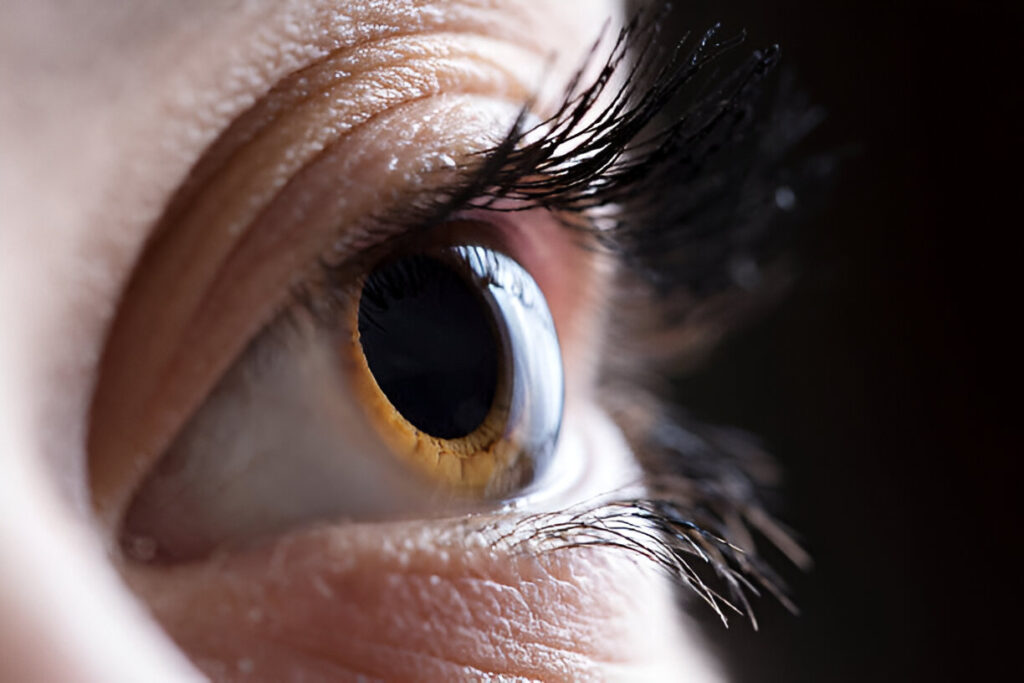Can Keratoconus Be Cured with Medicine? All You Need To Know
Keratoconus is a condition that affects the cornea, the clear, dome-shaped surface at the front of the eye. In this condition, the cornea becomes thinner and bulges outward into a cone shape, leading to distorted vision. One of the most common questions people ask when diagnosed with keratoconus is whether it can be cured with medicine. This article will focus on answering that question.
Understanding the Nature of Keratoconus
Before we address the question of a cure, it’s important to understand the nature of keratoconus. Unlike some other eye conditions, keratoconus is a progressive disorder. This means that it tends to worsen over time. The thinning and bulging of the cornea lead to increasing visual distortion, which can make daily activities like reading, driving, or recognizing faces challenging.
The Role of Medicine in Keratoconus Treatment
As of now, no medicine can cure keratoconus. Medicines cannot stop the progression of the disease, nor can they reverse the damage that has already occurred to the cornea. However, medications can be part of the treatment plan for managing symptoms or complications associated with keratoconus.
Managing Symptoms
Medications, such as lubricating eye drops, are often prescribed to help manage the dryness or irritation that can accompany keratoconus, especially if you wear contact lenses. These drops do not treat the keratoconus itself, but they can provide relief from some of the discomforts associated with the condition.
What is the Cause of Keratoconus?
Post-Procedure Medication
In cases where surgical interventions, like corneal cross-linking, are performed to strengthen the cornea, medications are sometimes used afterward. For example, antibiotic eye drops might be prescribed to prevent infection, and anti-inflammatory drops could be used to reduce swelling and aid in the healing process. Again, these medications do not cure keratoconus but support the recovery process after other treatments.
Why Can’t Medicine Cure Keratoconus?
Keratoconus involves structural changes to the cornea. Specifically, the collagen fibres that make up the corneal tissue weaken, leading to the thinning and bulging characteristic of the disease. Because this is a structural issue, rather than one caused by an infection or inflammation that could be treated with drugs, medicines are not effective in curing keratoconus.
To put it simply, medicine cannot restore the cornea to its original shape or strength. The treatments available focus on stabilizing the condition and improving vision, but they do not offer a cure.
What Should You Avoid if You Have Keratoconus?
What Are the Alternatives?
Since medicine cannot cure keratoconus, other treatment options are necessary. These include:
- Eyeglasses and Contact Lenses: In the early stages, vision can be corrected with glasses or soft contact lenses. As the condition progresses, rigid gas-permeable lenses may be required.
- Corneal Cross-Linking: This procedure strengthens the cornea by using ultraviolet light and riboflavin (vitamin B2) to create additional bonds between collagen fibres in the eye. It can slow or stop the progression of keratoconus.
- Surgical Options: In advanced cases, treatments like Intacs (corneal implants) or a corneal transplant might be necessary.
How Do You Treat Keratoconus?
Conclusion
While keratoconus cannot be cured with medicine, treatments are available to manage the symptoms and slow the progression of the condition. Medicines play a supportive role in the overall treatment plan, particularly in managing discomfort and aiding recovery after procedures. However, the structural nature of keratoconus means that a cure through medicine alone is not currently possible. If you have keratoconus, it’s essential to consult with an eye care professional to determine the best course of action for managing your condition and preserving your vision.
Take Control of Your Eye Health with Imperial Healthcare
At Imperial Healthcare, we understand the challenges that come with managing conditions like keratoconus. While medicine alone may not cure this condition, our expert team is here to guide you through the best treatment options available. From advanced diagnostic tools to cutting-edge treatments like corneal cross-linking, we are committed to helping you preserve your vision and maintain your quality of life. Schedule a consultation with our specialists today and take the first step towards better eye health with Imperial Healthcare. Your vision is our priority.
What Happens If Keratoconus Is Left Untreated?
Frequently Asked Questions
Is keratoconus hereditary?
Keratoconus can be hereditary, meaning it may run in families. However, the exact cause is unknown, and other factors, such as eye rubbing and certain conditions, can also contribute.
What are the early symptoms of keratoconus?
Early symptoms of keratoconus include blurry or distorted vision, increased sensitivity to light, and frequent changes in prescription glasses or contact lenses.
How is keratoconus diagnosed?
Keratoconus is diagnosed through a comprehensive eye exam, including corneal topography, which maps the shape of the cornea to detect any irregularities.
Can keratoconus be treated with glasses?
In the early stages, glasses may help correct vision, but as keratoconus progresses, rigid gas-permeable contact lenses or other treatments may be needed.
What is corneal cross-linking?
Corneal cross-linking is a procedure that strengthens the cornea by using UV light and riboflavin (vitamin B2). It can slow or stop the progression of keratoconus, preventing further vision loss.
What is the Role of an Ophthalmologist in Eye Care?

